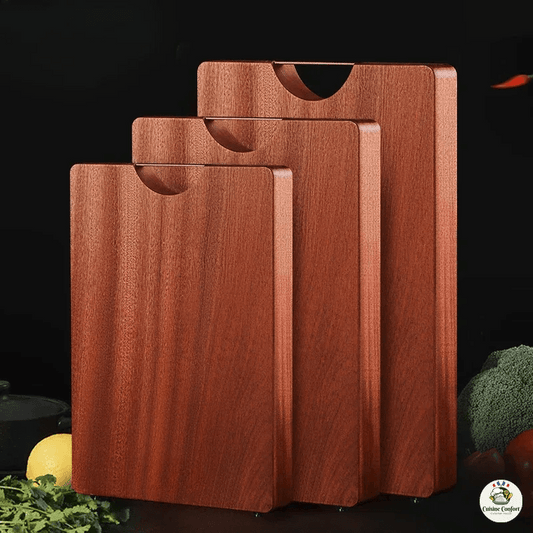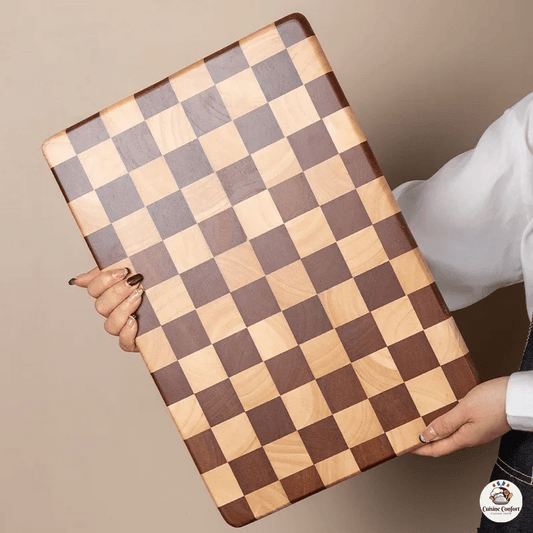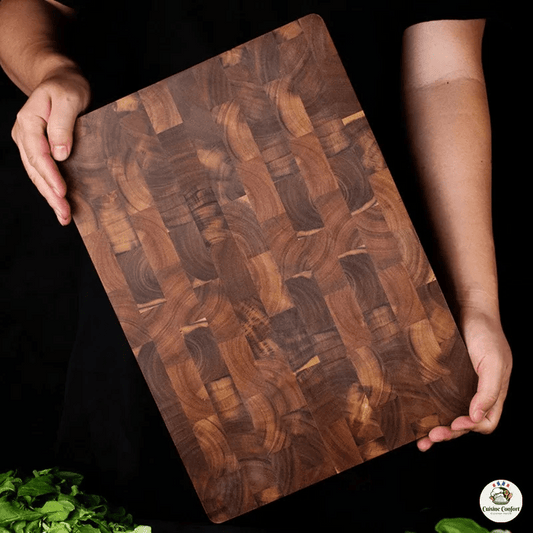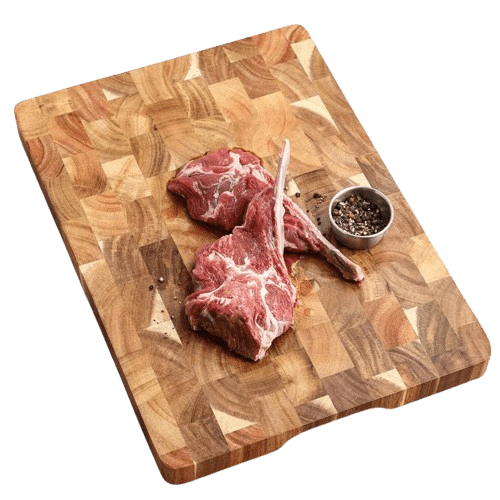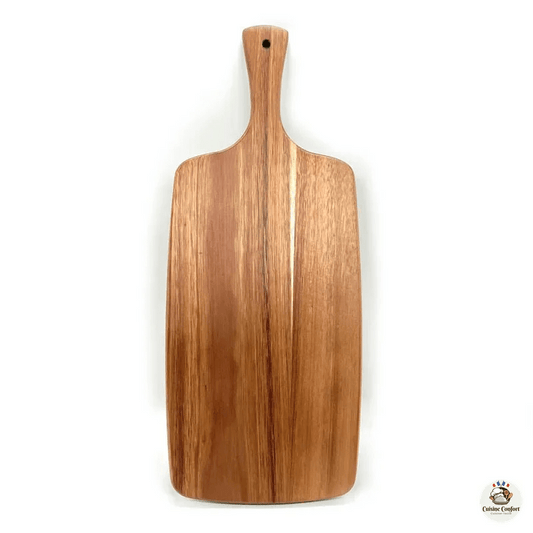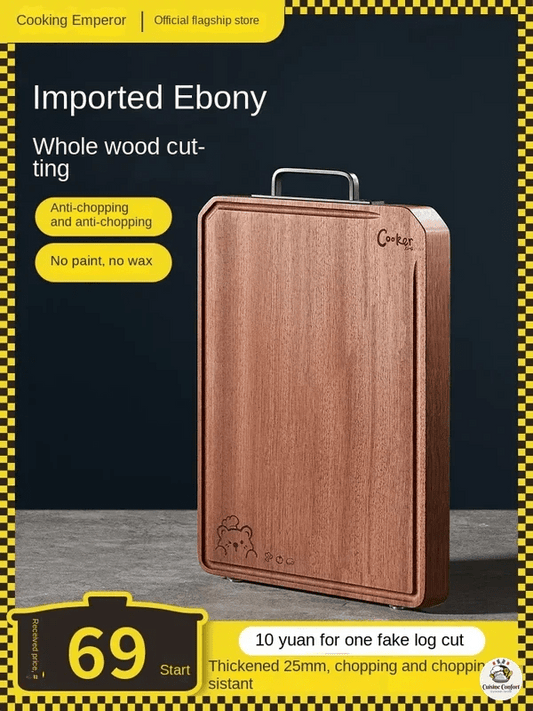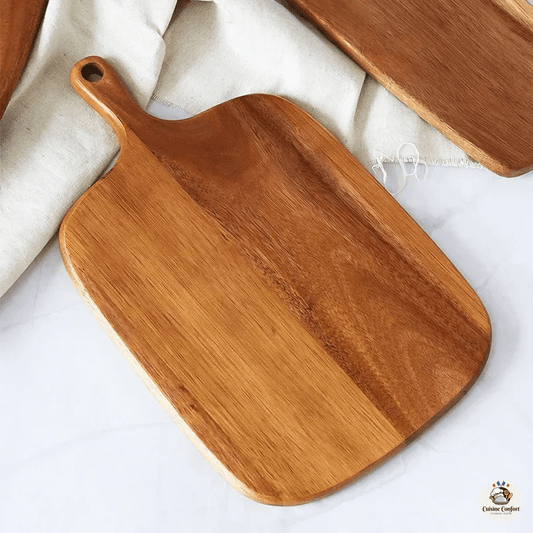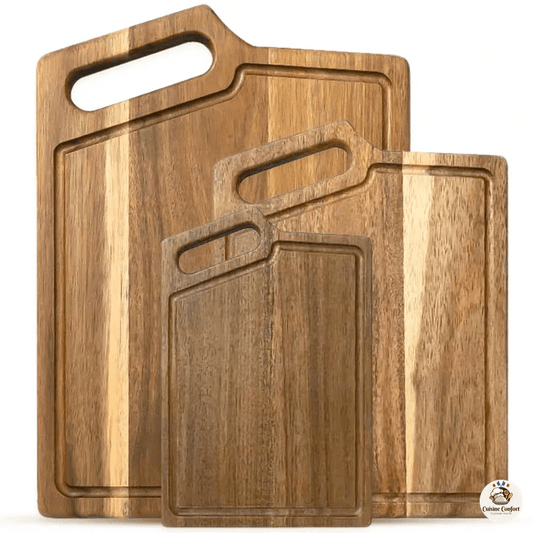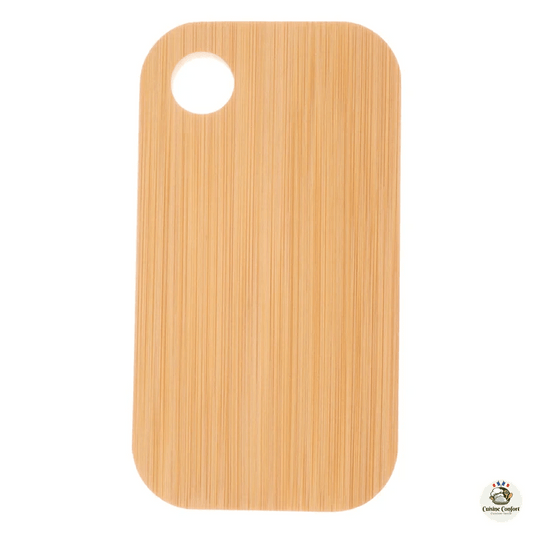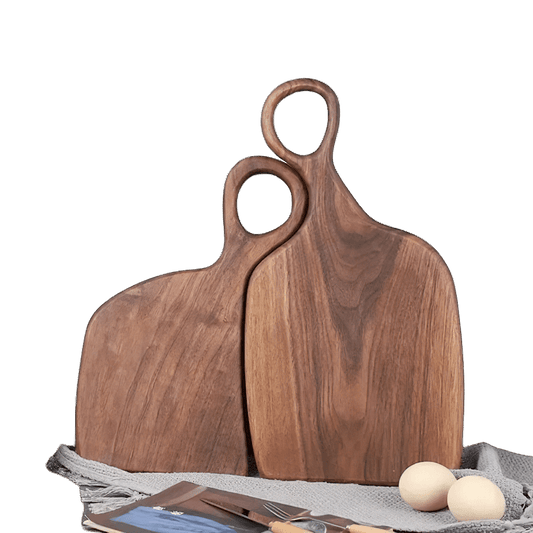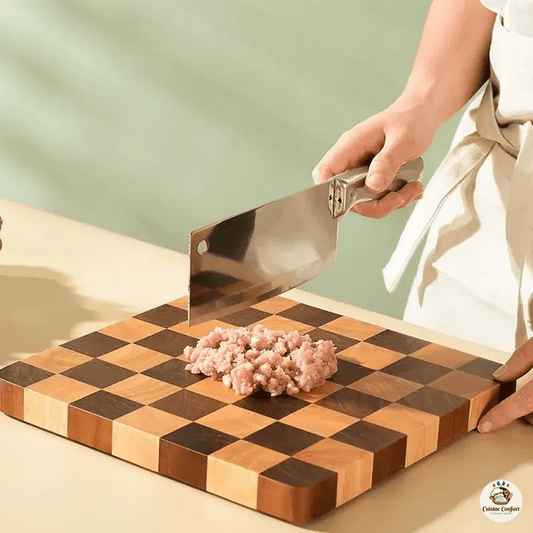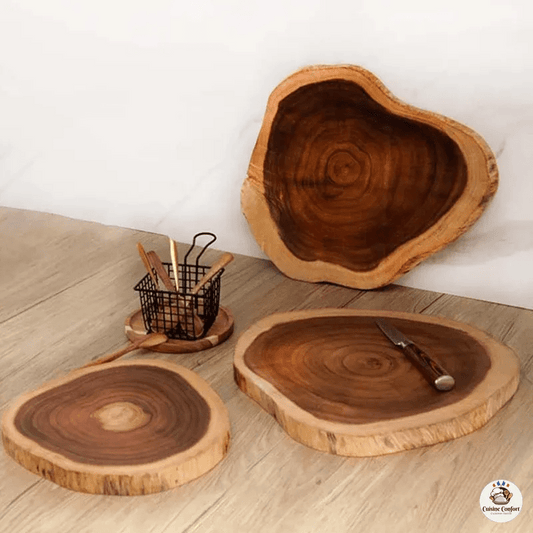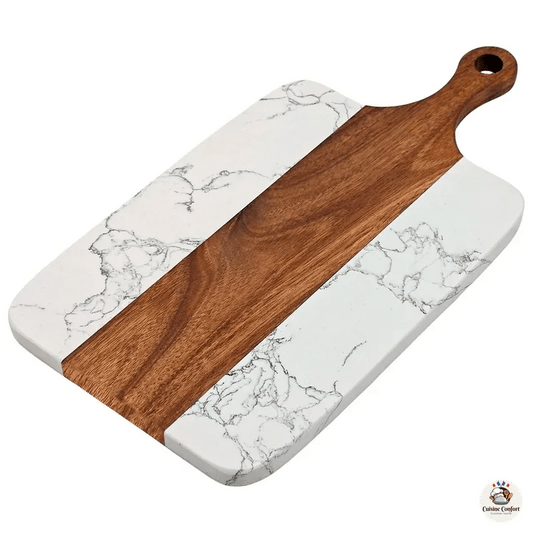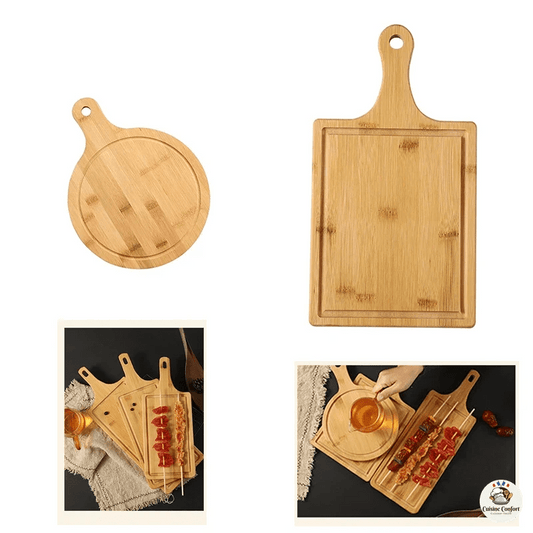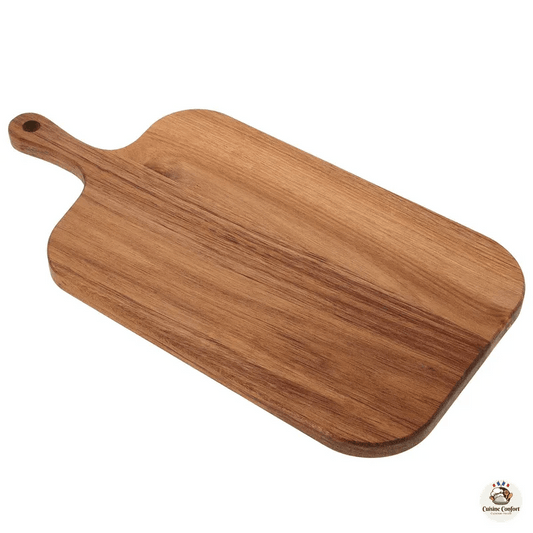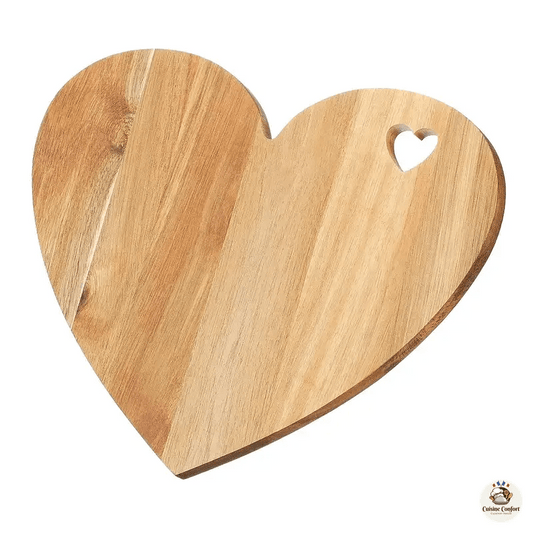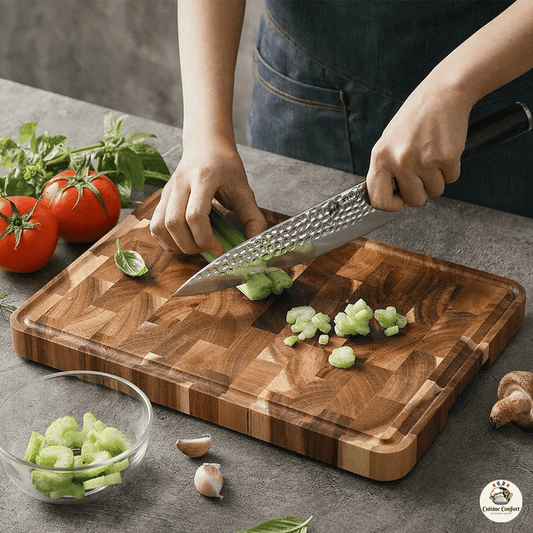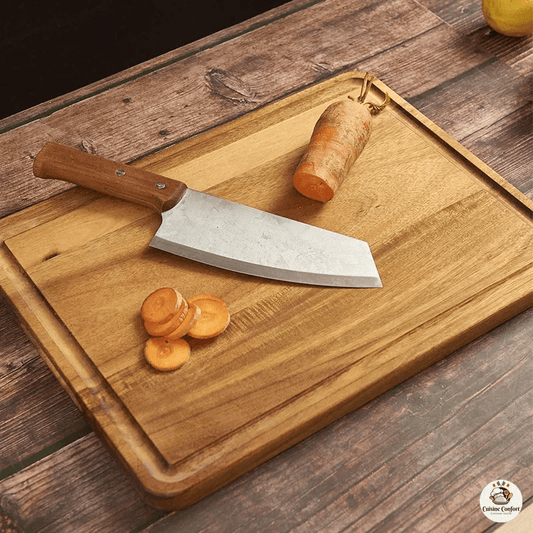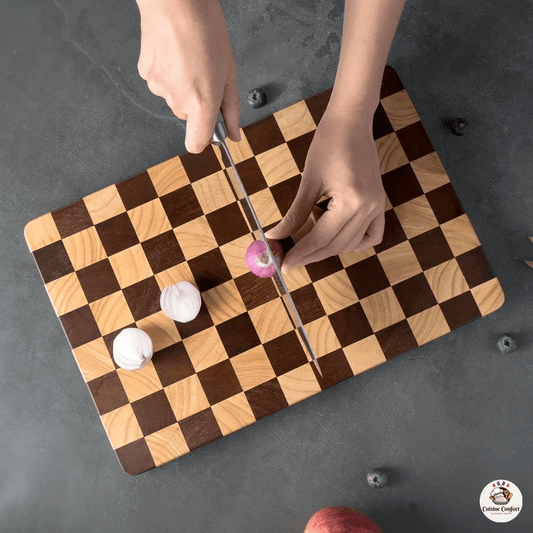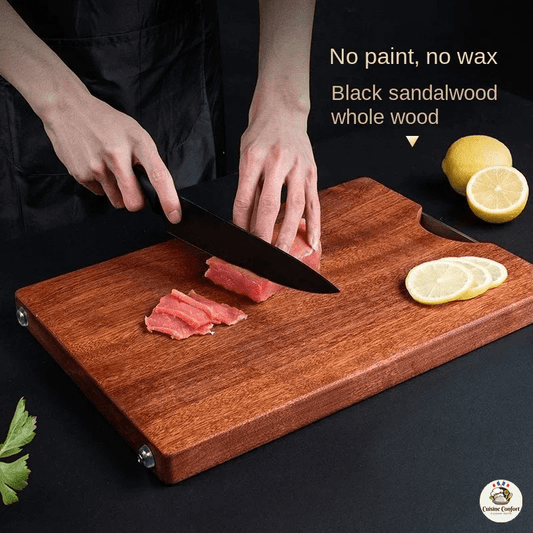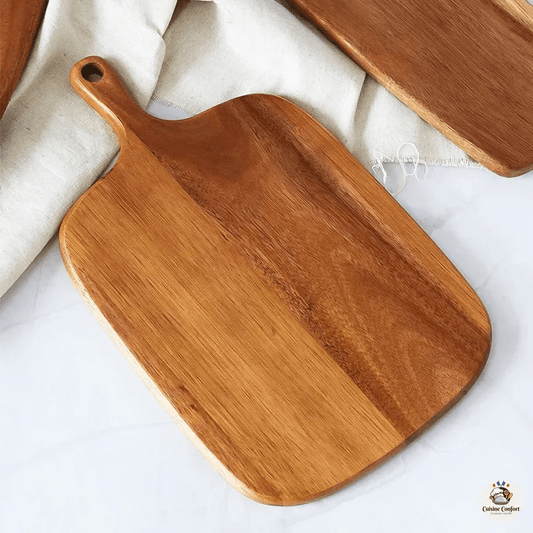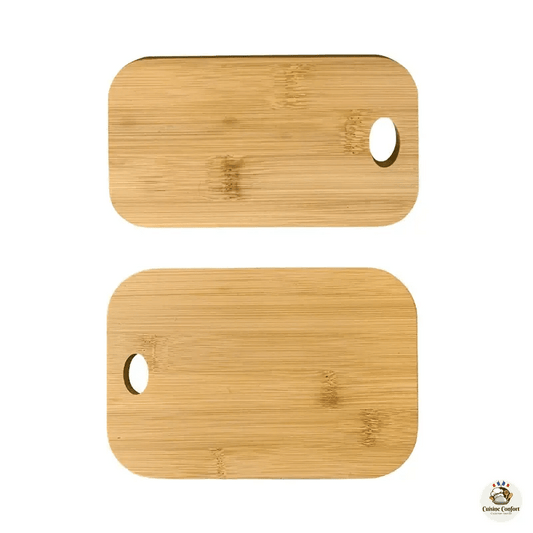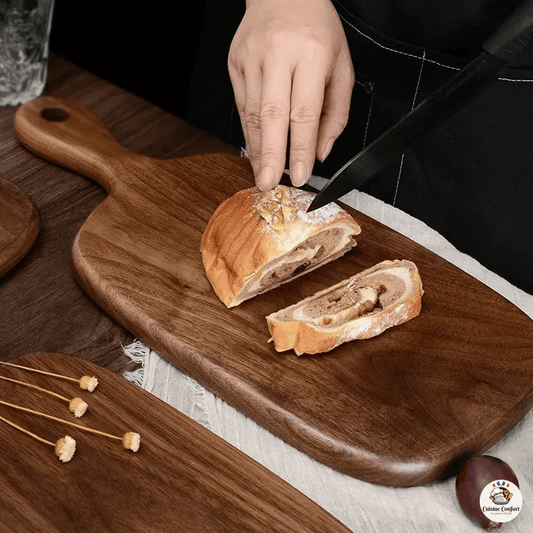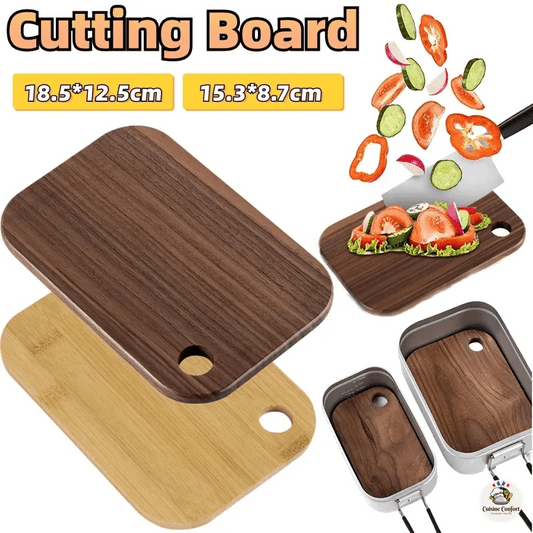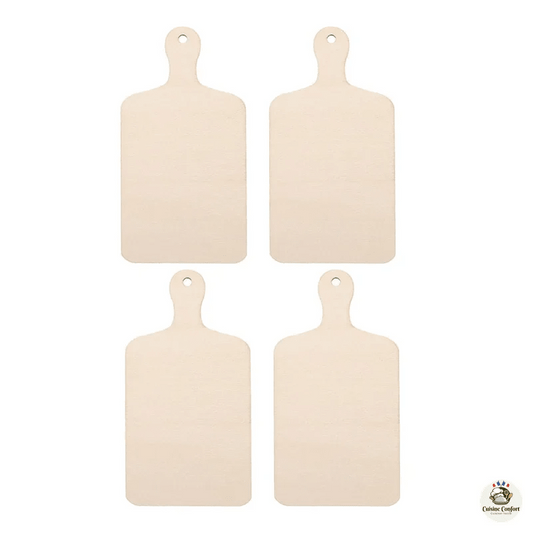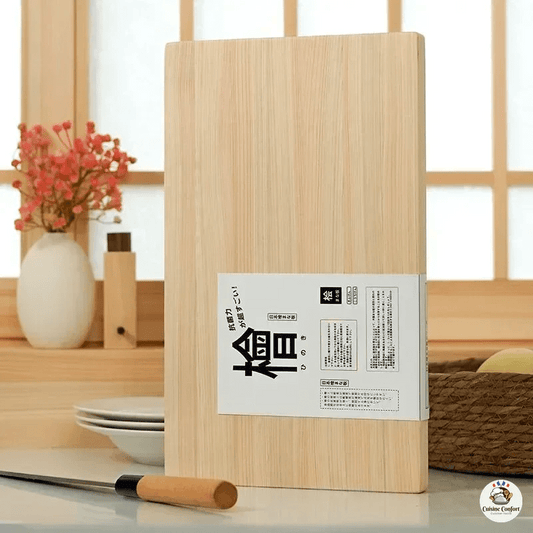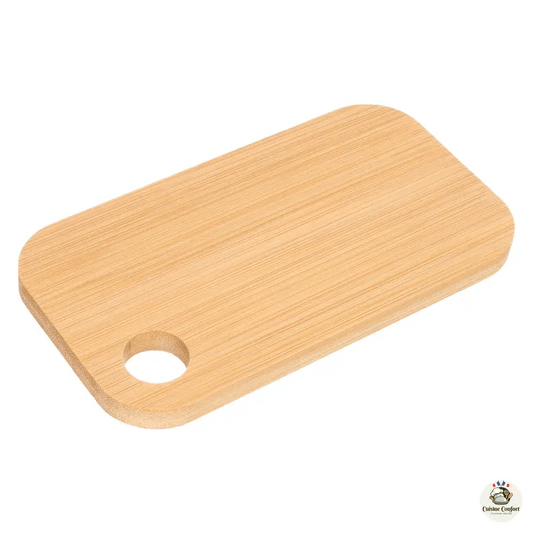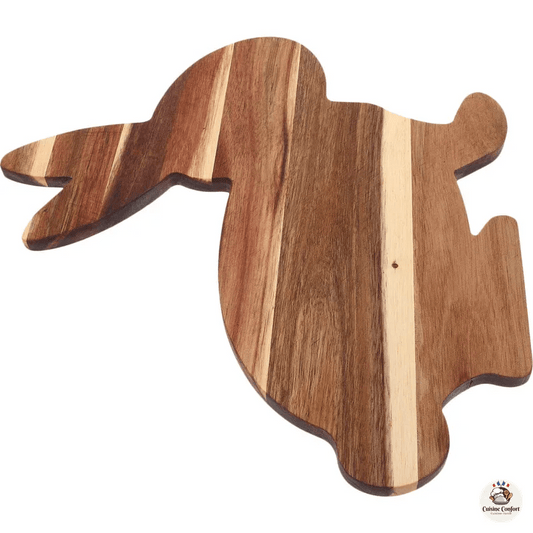Wooden cutting boards
Wooden cutting boards combine aesthetics and durability, offering efficient cutting and easy maintenance. They add a warm touch to your kitchen while protecting your knives. Discover our selection of cutting boards .
-
Thickened Solid Wood Cutting Board
Regular price 45,99€Regular priceUnit price / per -
Acacia Cutting Board Checkerboard Solid Kitchen
Regular price 49,99€Regular priceUnit price / per -
Double-sided acacia wood cutting board
Regular price 59,99€Regular priceUnit price / per -
Double-sided acacia wood cutting board
Regular price 99,99€Regular priceUnit price / per -
Solid wood cheese cutting board
Regular price From 19,99€Regular priceUnit price / per -
Onyx wood cutting board
Regular price 69,99€Regular priceUnit price / per -
Beech cutting board
Regular price 19,99€Regular priceUnit price / per -
Acacia cutting board with groove and handle
Regular price 19,99€Regular priceUnit price / per -
Mini Multipurpose Wooden Cutting Board
Regular price 9,99€Regular priceUnit price / per -
Traditional Solid Walnut Wood Kitchen Cutting Board
Regular price From 34,99€Regular priceUnit price / per -
Solid beech wood cutting board
Regular price 61,99€Regular priceUnit price / per -
Round Acacia Wood Cutting Board
Regular price 49,99€Regular priceUnit price / per -
Elegant wood and marble cutting board
Regular price 39,99€Regular priceUnit price / per -
Bamboo cutting board with round wooden base
Regular price 14,99€Regular priceUnit price / per -
Acacia Wood Cutting Board
Regular price 12,99€Regular priceUnit price / per -
Versatile Wooden Heart Cutting Board
Regular price 12,99€Regular priceUnit price / per -
Acacia wood cutting board
Regular price 59,99€Regular priceUnit price / per -
Beech wood cutting board
Regular price 14,99€Regular priceUnit price / per -
High quality wooden cutting board
Regular price 39,99€Regular priceUnit price / per -
Thick domestic wooden cutting board
Regular price 49,99€Regular priceUnit price / per -
Premium beech wood cutting board
Regular price 24,99€Regular priceUnit price / per -
Lightweight wooden cutting board
Regular price 9,99€Regular priceUnit price / per -
Multi-function solid wood cutting board
Regular price 28,99€Regular priceUnit price / per -
Portable wooden cutting board with holes
Regular price 12,99€Regular priceUnit price / per -
4-piece wooden cutting board for children
Regular price 24,99€Regular priceUnit price / per -
Japanese cutting board
Regular price 53,99€Regular priceUnit price / per -
Portable wooden cutting board for camping
Regular price 9,99€Regular priceUnit price / per -
Cutting board for vegetables
Regular price 13,99€Regular priceUnit price / per
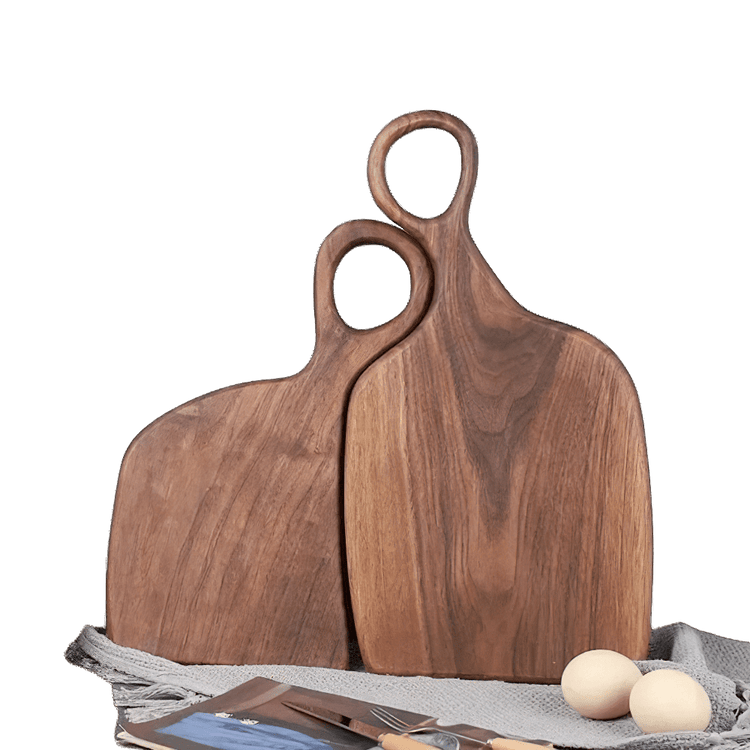
Collection: Wooden cutting boards
Why choose a wooden board?
Wooden cutting boards are prized for their durability and smoothness on knives. Unlike harder surfaces like stainless steel, wood preserves the sharpness of your blades, extending their lifespan. Additionally, wood is naturally antibacterial, providing superior hygiene when properly maintained.
What is the best wood for a cutting board?
Wooden cutting boards are made from different types of wood, each with its own characteristics. Oak is strong and durable, perfect for heavy use, while bamboo is lighter and more renewable. Maple is particularly valued for its fine grain, reducing the risk of cracking and bacteria. Each type of wood offers unique benefits, so choose the one that best suits your needs.
Advantages and disadvantages of wooden boards
Wood is distinguished by its durability and aesthetics, but requires more rigorous maintenance than other materials like plastic. It is recommended to oil wooden boards regularly to prevent them from drying out or cracking. For an easy-to-maintain alternative, explore our plastic boards , or discover our range of stainless steel boards , resistant and hygienic.
Maintaining wooden boards for optimal hygiene
To ensure optimal hygiene , clean your wooden board after each use with warm water and a soft cloth. Avoid soaking it in water and dry it immediately. Apply a food-safe mineral oil once a month to protect it and prevent cracks.
What is the best material for a cutting board?
The best cutting board depends on your needs. Wood is ideal for its durability and blade-friendly properties, while plastic is popular for its hygiene and easy maintenance. Stainless steel, on the other hand, is perfect for intensive and professional use.
When should you replace a wooden board?
It's advisable to replace your wooden board when it has deep cracks or significant marks, as these can harbor bacteria. A well-maintained board can last for several years, but it's essential to monitor its condition to ensure impeccable hygiene.

